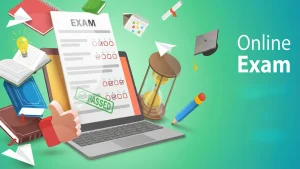In an age where digital tools are shaping education, access to information must be quick, seamless, and reliable. A Library Management System play a vital role in enabling that access. It not only simplifies the way the library functions but also helps students’ study more effectively. From automated borrowing to real-time book availability, this system brings structure to library operations, ultimately leading to enhanced student productivity. But how does it actually achieve this? Let’s dive into the benefits.
What Is a Library Management System?
A Library Management System is a software platform that digitizes and automates library processes such as cataloging, issuing, returning, and tracking books. Traditionally, library functions were managed manually, which often led to delays, human errors, and inefficient tracking. However, this modern system reduces paperwork, minimizes errors, and offers accurate data management. It provides students with an intuitive interface to search, reserve, and borrow materials, thereby saving time and effort. Librarians also benefit from reduced workloads and better resource monitoring.
Make studying easier and faster with our smart Library Management System try it today!
Real-Time Access to Learning Materials
One of the standout features of a Library Management System is that it provides students with 24/7 access to learning resources. No longer restricted by the library’s physical opening hours, students can now search online catalogs, reserve books, or access digital materials like e-books and journals whenever they want. This flexibility is crucial, especially during exam periods or assignment deadlines. As a result, students can make the most of their available time, study more efficiently, and maintain consistent learning habits.
Streamlined Borrowing and Returning Process
Borrowing or returning books becomes a hassle-free process with an integrated Library Management System. Students no longer need to wait in long queues or manually fill out forms. With self-service kiosks or mobile-based portals, the entire process becomes faster and smoother. Moreover, the system sends automated notifications for due dates and late returns, helping students manage their responsibilities effectively. By avoiding overdue penalties and ensuring timely returns, students stay more organized and focused.
Better Organization = Better Focus
An efficiently managed library supports a focused learning environment. A Library Management System ensures that books, journals, and digital resources are neatly categorized and easy to locate. With advanced search filters, students can quickly find materials by title, author, subject, or keyword. This eliminates unnecessary time spent browsing through shelves or outdated index cards. When students can find what they need without delay, they can dedicate more time to studying and improving their academic performance.
Supports Collaborative Learning
Many Library Management Systems come with features that encourage student collaboration. These include peer reviews, reading history sharing, and resource suggestions based on what classmates are reading. By viewing what others are engaging with, students can discover new materials that support their learning. In group assignments or study groups, this shared access enhances collective knowledge. Furthermore, digital discussion boards or book rating systems integrated into the platform add an interactive dimension to the library experience.
Performance Analytics and Reports
Modern Library Management Systems are not just storage tools—they also offer valuable insights through built-in analytics. These analytics can show borrowing trends, popular materials, and student engagement with specific subjects. Such data allows librarians and educators to understand what students are actually using and where gaps exist. With this knowledge, institutions can better curate library collections and suggest personalized resources to students. This targeted support directly contributes to academic success.
Learn More: What is a Library Management System?
Eco-Friendly and Cost-Effective
Besides improving productivity, a Library Management System also supports environmental sustainability and budget efficiency. By offering digital versions of books, articles, and reference materials, the need for printing and paper is significantly reduced. This leads to lower operational costs for institutions and a smaller environmental footprint. For students, having access to digital copies means they can study on the go, take notes online, and avoid carrying heavy books—all of which contribute to a more efficient learning routine.
Seamless Integration with Academic Systems
One of the key advantages of a Library Management System is its ability to integrate with other academic tools and platforms. Whether it’s the student portal, attendance system, or learning management system, this integration ensures a smoother user experience. Students can check their borrowed books, get course-based reading suggestions, and manage their academic resources from a single interface. This consolidation saves time and keeps them better organized across their academic activities.
The modern student needs more than just access to books—they need a smart, efficient, and flexible way to interact with library resources. A Library Management System bridges this gap by simplifying processes, supporting digital access, and fostering academic collaboration. By saving time, improving organization, and offering valuable insights, it truly plays a central role in boosting student productivity.
FAQs
Q1. How does a Library Management System save time for students?
It automates book search, borrowing, and return processes. Students can access and manage resources quickly through an online platform without manual intervention.
Q2. Is a Library Management System useful for small institutions?
Yes, even smaller schools and colleges benefit from the improved efficiency, reduced paperwork, and enhanced student engagement that the system offers.
Q3. Can students access digital resources through this system?
Definitely. Most systems provide access to a digital library, including e-books, research papers, and online journals, which can be used anytime.
Q4. Does the system offer reminders for due dates?
Yes, students receive automated alerts via email or app notifications regarding due dates, helping them avoid penalties and manage time effectively.
Q5. Is it difficult for students to learn how to use the system?
No. Most Library Management Systems are designed to be user-friendly, featuring intuitive dashboards and help guides that make it easy for students to navigate.
Explore the benefits of a Library Management System and unlock your students’ full learning potential — Visit eGenius.in.















